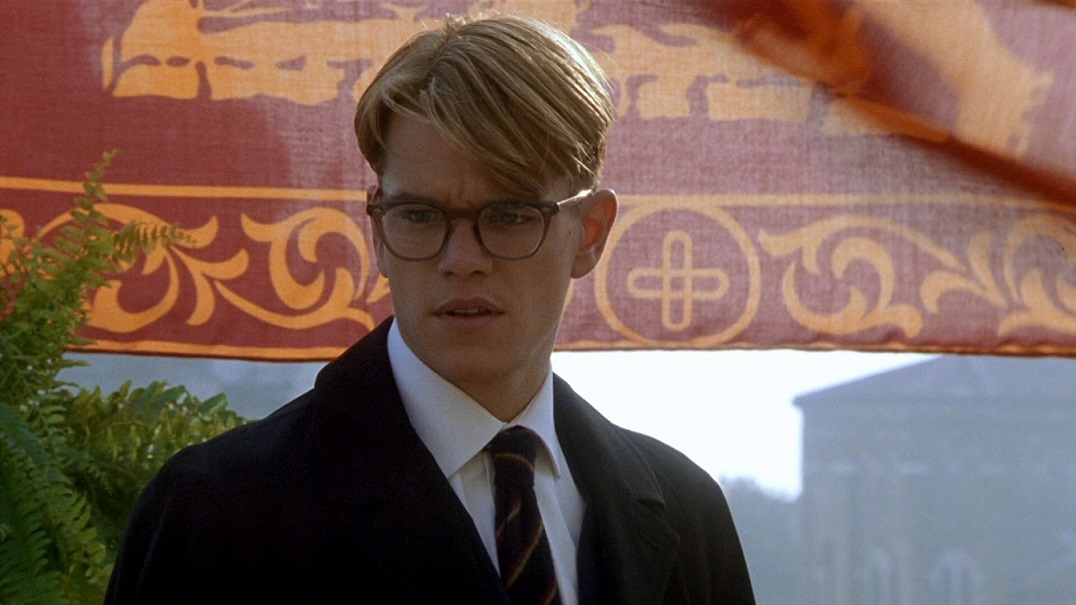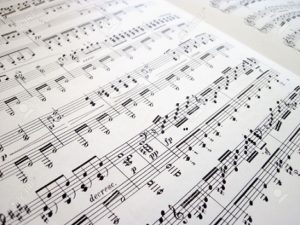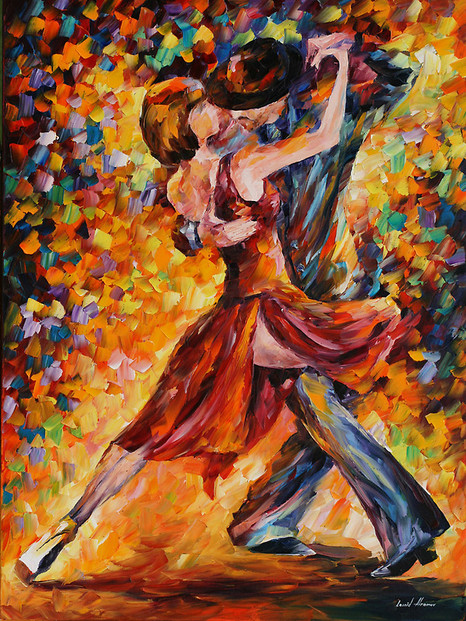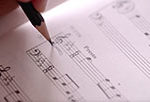
The Talented Mr. Ripley came out in 1999; it has a rating of 7.3/10 in IMDb and 83% in Rotten Tomatoes. I finally got to watch it recently in Netflix. I was pleasantly surprised by the music in the movie, so let's talk about this movie!
In this mentally-disturbing thriller, three men—Tom Ripley, Dickie Greenleaf, and Peter Smith-Kingsley—are caught in intense, complicated relationships. Of course, we are not trying to talk about the movie here, as this blog focuses on music and music only. The movie offers a great opportunity to talk about how the audience's perception of music can be used to enhance different characters' personalities; in other words, the stereotypes of different music types accentuate the three characters. The stereotypes are certainly not completely accurate and sometimes even erroneous, but our focus is exactly that—how this movie's use of music reflects what music types mean to the audience. Below we'll talk about the music types associated with the three characters in this movie and how the musical representation reveals the general perception of music types.
After a short, ominous monologue of Tom Ripley, the movie starts at a cheerful and yet formal cocktail party, in which Tom accompanies a singer, Fran, on the piano. The work they perform is in the style of classical music. After the party Tom has to rush to his day job—helping gentlemen groom themselves in the restroom of an opera house. He peaks into the performance, Beethoven's Piano Quartet in E-flat major, op. 16. Then, after the concert is over, Tom plays Bach's Italian Concerto.
The so-called classical music is Tom's world. What is classical music then? The term "classical music" generally refers to the music of the Western tradition. To the general public, classical music seems uptight and strict, as the musicians play from the scores and should not improvise. The audience in a classical music concert should not applaud during movements. This stereotype quickly establishes Tom's personality—nervous, rigid, and worrisome.
The other character, Dickie Greenleaf, is a big jazz fan. He is obviously very different from Tom. He is a free soul and spontaneous; he plays jazz saxophone and nothing in the world worries him. It does not matter that jazz musicians have to know music theory and practice all kinds of patterns to prepare for the seemingly spontaneous improvisation on stage; people's impression of jazz is that it just happens in the moment. Dickie's character is exactly that.
He names his boat "Bird," the nickname of Charlie Parker. To attract Dickie's attention, Tom brings some jazz LPs and "accidentally" drops on the floor, including the LPs of Chet Baker, Sony Rollins, and of course Charlie Parker. The music Dickie performs at night clubs are spontaneous like "Tu Vuo' Fa l'Americano" or jazz standard like "My Funny Valentine." Playing his saxophone, Dickie is seen in his own element on the stage; like a jazz player is supposed to be, Dickie is confident, free, happy, living in the moment. When Tom is dragged on to the stage, he is uncomfortable and uses his talent "impersonating" to sing the vocal part in "My Funny Valentine." In jazz, Tom impersonates the voice; in Dickie's world, Tom will eventually impersonate Dickie.
Again, the general public's perception of jazz is used to emphasize Dickie's carefree personality. As hard as he tries, Tom could not fit in; he could only impersonate a female singer in "My Funny Valentine" because jazz is not his music.
Peter Smith-Kingsly is associated with yet another music type—sacred music. More specifically, he is seen rehearse Stabat Mater dolorosa (The sorrowful mother stood), a thirteenth-century Catholic hymn to Mary. The music history of the Western tradition pretty much starts with sacred music, not because that was the only music people sung but because church was able to preserve music in the written form. Therefore a lot of early music was used in religious settings. Sacred music naturally gives the impression of integrity, humbleness, and morality.
Indeed, Peter is nice and sincere; he embraces his own sexual orientation, is a genuine friend for Marge Sherwood (Dickie's girlfriend), and treats Tom with kindness and respect. Before the scene of Peter's rehearsal at a church, Tom plays Stabat Mater dolorosa on the piano, suggesting he attempts to enter Peter's world. Is he successful? I'll let you be the judge.
These characters—Tom Ripley, Dickie Greenleaf, and Peter Smith-Kingsley—are portrayed with the help of three different types of music—classical music, jazz, and sacred music. The stereotypes of these different music types enhance the audience's understanding of the characters. It is fine if these stereotypes are not accurate; what matters is that the music is used to impose the stereotypes onto the characters. The character's personality is therefore represented not only by their behaviors but also the music types associated with them. To me, the musical representation of personality is even richer than action and words. Even if you don't know much about these music types, perhaps the characters also give you some clue about the music?
Whether you like these types of music or not, this movie is great. It's time to re-watch it!
Ready to learn music?
Start learning with our 30-day free trial! Try our music courses!
About Liberty Park Music
LPM is an online music school. We teach a variety of instruments and styles, including classical and jazz guitar, piano, drums, and music theory. We offer high-quality music lessons designed by accredited teachers from around the world. Our growing database of over 350 lessons come with many features—self-assessments, live chats, quizzes etc. Learn music with LPM, anytime, anywhere!










